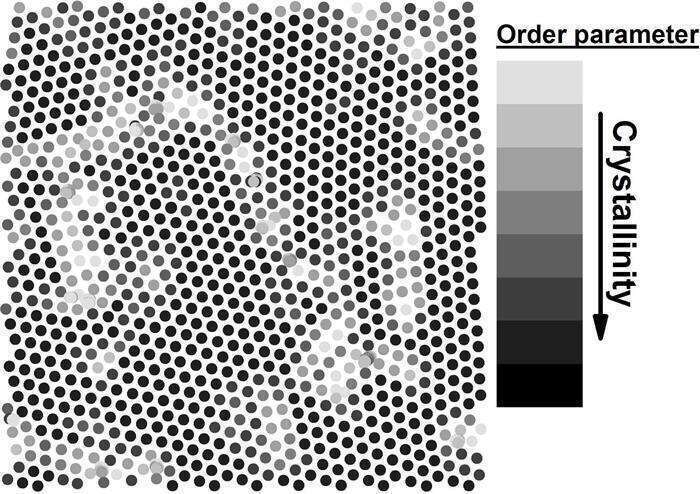Colloidal spheres confined to two spatial dimensions (2D) provide a unique insight into the fundamental physics of fluids and crystals. These 2D systems, thermodynamically-equilibrated by Brownian motion, are capable to mimic a wide variety of complex interfacial phenomena exhibited by atoms and molecules, such as the phase transitions in Langmuir films and complex relaxation dynamics during atomic deposition, widely used in science and technology. Colloids are visible by direct optical microscopy, allowing their behavior to be studied in a great detail, unavailable for monolayers of atoms and molecules. While 2D colloidal monolayers have been widely studied in the past, in most of these studies the suspending medium was confined to 2D as well, giving rise to significant hydrodynamic interactions between the colloids.

We form a two-dimensional suspension of colloidal PMMA spheres in a solvent[1]. The spheres, density mismatched with the solvent, form a 2D fluid at the bottom of the container, pre-coated by polyhydroxystearic acid to avoid particle immobilization. Importantly, while the colloidal spheres in our samples are confined to a single 2D plane, the solvent is unconfined, contrasting with the previous studies. Moreover, by slight tilting of these samples, employing a special stage, we fine-tune the rate and the direction of the in-plane drift of our particles under gravity.
We track individual particles in fluids and crystals and quantify the interparticle correlations in these 2D colloidal systems, both under static conditions and when flowing, driven by an external field. Some results are compared with computer simulations, allowing a deeper insight into the physics of collective phenomena in 2D to be gained.
[1] E. Janai, A. B. Schofield, and E. Sloutskin, Soft Matter 8, 2924 (2012).
eli.sloutskin@biu.ac.il